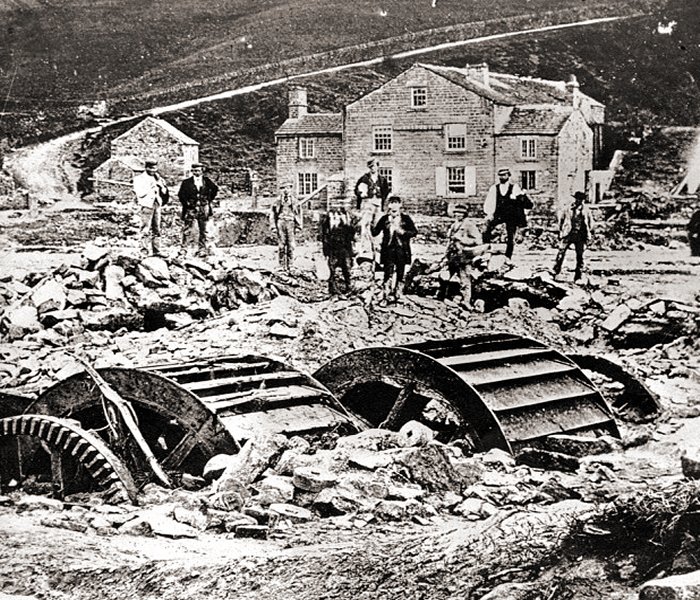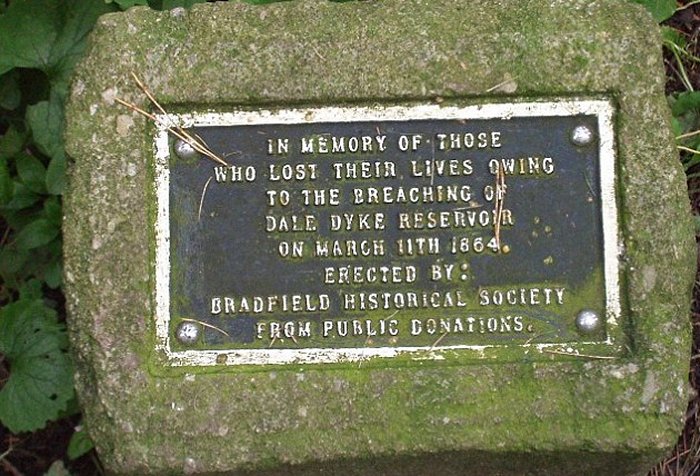On This Day In History: Great Sheffield Flood – Largest Man-Made Disaster Happened In England – On Mar 11, 1864
MessageToEagle.com – On March 11, 1864, the so-called Great Sheffield Flood – the largest man-made disaster ever to befall England.
This tragic accident was ‘largely forgotten because it killed northern ‘working-class people’ but we have to remember Sheffield’s terrible day – at least – today.
A dam near Sheffield, England burst its reservoir and caused a flood that killed 244 people: additionally more than 600 houses sustained damage or were destroyed throughout Yorkshire.

In the mid 19th century, the city of Sheffield was the British center of steel-making and this industry was systematically expanding, creating a huge demand for water. In response to the pressure, the Sheffield Waterworks Company decided to construct The Dale Dyke Dam, in the Loxley Valley, north of the city. Work started in 1859 and early in 1864, the dam and its reservoir were complete.
On 11th March 1864, just as the reservoir was a few feet short of being filled and ready to start business, a workman noticed a small crack running along the reservoir wall, ‘just wide enough to enter a finger’. He immediately alerted the foreman who sent for the chief engineer, John Gunson, who was in the city center, eight miles away. As Gunson set off in a carriage, a storm started up, and by the time he arrived at the scene, water was lapping over the top of the reservoir.

Gunson instructed the workmen to reduce the level of the reservoir by causing an explosion in the overflow compartment, but the severity of the storm, prevented the gunpowder from igniting. Gunson and his men could only watch in horror as the crack expanded and the dam burst with a violent force that shook the ground like an earthquake.
As much as 700 million gallons of water flooded down the valley into Sheffield, causing death and devastation on a colossal dimension. 270 people were killed and bodies were swept by the flood as far away as Mexborough. The youngest victim was two days old and the oldest 87.
A subsequent enquiry revealed that the construction of the dam was defective and that a small leak had widened until the wall could no longer retain the force of the water. Many of the victims are buried in Burngreave Cemetery, Sheffield.
The Dale Dyke Dam, where the disaster occurred, was rebuilt in 1875.
MessageToEagle.com










